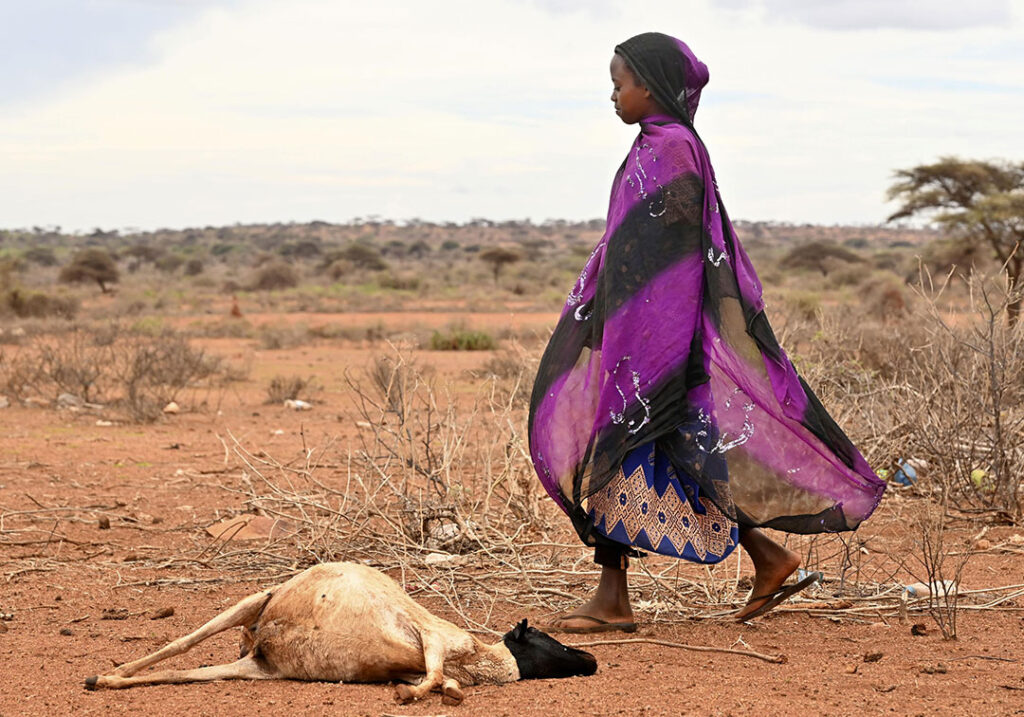ADF STAFF
Fighters from the Oromo Liberation Army rebel group took a woman named Alemetu from her home in Ethiopia’s Oromia region as she tried to sleep.
She was taken to an abandoned school where 40 OLA fighters lived and was held hostage for four weeks. During her captivity, Alemetu was beaten with a horsewhip and suspended upside down from a tree for several hours — while she was pregnant.
Alemetu was released only after her family paid a ransom of 110,000 birr (just more than $1,900), a huge sum in rural Ethiopia. The OLA, which torched her house after her release, claims to fight for the self-determination of the Oromo ethnic group, but it is classified as a terrorist group by the government.
At the time, Alemetu’s family also was trying to pay a 90,000 birr (almost $1,555) ransom to free her uncle, a local farmer, from kidnappers. The family is now destitute.
“It is very rare to find a family in our area who has not been affected by kidnapping,” Alemetu told The Guardian. “The government has no control.”
Alemetu said she believes she was kidnapped because her husband accepted a job at a local government office.
“Even if you just pay taxes, the fighters will attack you,” she said.
Anyone Can Be a Target
Stories like Alemetu’s are increasingly common across Ethiopia, where more than 100 people, mostly students, were being held for ransom by kidnappers as of mid-July, according to The Week magazine.
Most of the kidnappings occur in Oromia, although kidnappers also operate in the war-scarred regions of Tigray and Amhara. There also have been cross-border kidnappings by groups unattached to the OLA reported in several parts of the country.
In March, kidnappers captured a 16-year-old schoolgirl in Tigray and demanded a 3 million birr (more than $51,800) ransom from her parents. The abduction was reported to police, but the girl’s dead body was discovered in June, sparking a national outcry.
Kidnappings were rare outside OLA strongholds in western Oromia until recently. The attacks typically targeted police officers, government officials and their relatives, and the aims were generally political — such as driving instability or showcasing their presence in a specific area — rather than financial.
As The Guardian reported, kidnapping for ransom is now common. And abductions are occurring near Addis Ababa, the national capital, as the OLA’s insurgency spreads to new areas. Now, anyone can be a target.
Independent researcher Jonah Wedekind said bandits motivated simply by financial gain also might be engaging in kidnapping for ransom.
“Some armed actors perceive the OLA to be efficiently raising capital through these attacks and might be copying them,” Wedekind told The Guardian. “And this is part of the wider problem: the conflict reflects the economy breaking down, and people don’t have jobs, so this is what they turn to.”
Allegations have emerged that financial institutions are revealing people’s account balances to kidnappers before or during kidnappings. This was confirmed by multiple law enforcement sources who spoke anonymously to the ENACT organized crime project.
A journalist speaking anonymously told ENACT that cash collected as ransom has found its way back into financial institutions in Ethiopia, and neighboring Kenya and Sudan, where the money was processed as legitimate transactions.
This money is suspected of driving conflicts and facilitating transnational organized crimes such as arms trafficking and financial offences.
‘All We Do is Cry and Pray’
On July 3, gunmen attacked three buses and kidnapped dozens of students from Ethiopia’s Debark University who were traveling to Addis Ababa. The buses were stopped near Garba Guracha, a small town in Oromia.
“There were gunshots, and I heard repeated orders to run,” an animal science student using the name Mehret told the BBC. “I didn’t even know what we were doing.”
Mehret was one of the few people who escaped.
“They told everyone to get off” the bus, a law student using the name Petros said. “They started beating everyone [with sticks] and forced us to run to the woods close by. It was terrifying.”
Some of the victims’ relatives accused authorities of not giving the incident enough attention.
“It is confusing why the authorities are neglecting the issue while our children have been taken away,” a man using the name Dalke, whose daughter is among the victims, told the BBC.
Another man said he simply wants his loved ones back.
“We don’t have any money to offer [the kidnappers]. I sacrificed a lot to send my children to school,” he said. “Now all we do is cry and pray.”

